The movie “Hungarians” (Magyarok), which was shot in 1978 by Zoltán Fábri, one of the masters of the Hungarian cinema, tells a story that begins when a group of Hungarian peasants, men and women, go to a farm in Germany to work in 1943, in the midst of the World War II. There happens to be a concentration camp right next to the farm, but these Hungarian peasants have not even heard the name of Hitler. They work a year long under the charge of a Hungarian foreman and manage to save some at the farm, which is owned by a German nobleman. Than it becomes clear that the Germans are about to lose the war. When the Hungarians return home, the men are put back on the train even before they set foot in their houses. But this time, they are not going for volunrary work, but are sent to fight in the final days of a lost war.
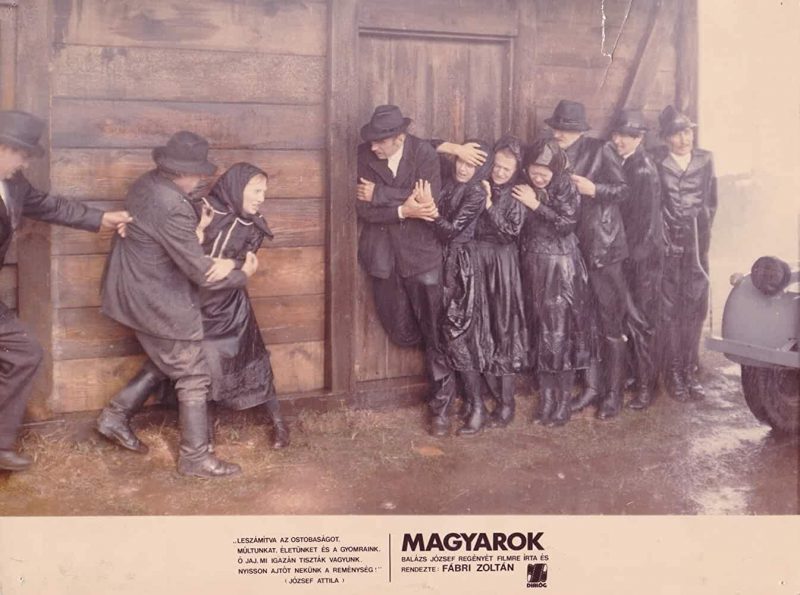
In one of the film’s most memorable scenes, a dream of the youngest of these Hungarian peasants, Abris, who has a lung disease, is shown. In the dream Abris is lost in a misty and an endless forest and left alone, searching for his fellow citizens, while shouting “Hungarians… Hungarians… I am looking for you Hungarians… Where are you…”. He sees an old man sitting in front of his little cabin, and asks him: “I am looking for the Hungarians sir.” The old man answers: “You are in the right place, son, but you will not find any Hungarians other than me in the world. I am the last Hungarian.”
The unfortunate young man does not want to believe what he heard, but cannot find the Hungarians he was looking for either.
Zoltán Fábri does not put a strong narrative or a saga-like structure in “Hungarians”, which in the opening credits cites the lines of their national poet Attila József: “Except our naiveness / our past, our lives and our desires were satisfactory / Oh, how naïve we really were / Let us hope the doors open before us”. On the contrary, the film tells a “small” story and displays a simple narrative. Fabri takes a poetic look full of pain and protest at the far and recent history of the Hungarians and their national spirit, without resorting to any illusions or aesthetic tricks.
Patriotic tradition in the Hungarian poetry
The echo in the Zoltán Fábri’s (1917-1994) poetic movie “Hungarians… Hungarians… Where are you…”, had also been present in the works of the three great poets before, who left a deep mark in the country’s history. These three patriotic poets Sándor Petőfi, Endre Ady, Attila József, who are among the most important figures not only in Hungarian literature history, but throughout the world, have called out for the Hungarian national spirit, addressed Hungarians with rather gloomy and discontented verses, and often even made very cruel and furious criticisms in almost all their works during their short lives. There is a silent and a waking cry in these poems, resembling the words of Nâzım Hikmet says; “Most of the blame is yours, my dear brother!”

A great patriotic tradition is present in the Hungarian poetry, which started with Balint Balassi, one of the founders, who translated numerous poems from Latin, German, Italian, Croatian, Polish, Slovak and Romanian languages, as well as from Turkish, and who died in the battle against the Ottoman Empire in the city of Esztergom in 1594. Although later generations stayed loyal to this tradition, the poem “Rise up, Hungarian” by the national poet Sándor Petőfi (1823-1849), one of the symbols of the 1848 revolution, has marked an important turning point.

In his poetry, Petőfi says “We were slaves up til now, / Damned are our ancestors, / Who lived and died free, / Cannot rest in a slave land. / By the God of the Hungarians / We sware to you, / that we will be slaves / No longer!”. Petőfi compares their glorious past to the humiliating present situation in his time, reflects his grief, frustration, painful tears and pessimism in his verses, shouts “he who is a slave, is not a Hungarian!” and calls for a relief from the shame that has pervaded inside the Hungarians.
The poet, who was influenced by the principles of the French Revolution and died in the war of independence against the Austrian Empire at the age of 26, with his body never found, is today remembered with the words “Petőfi is dead, but his soul never rests”.
Our beloved poet Attila Ilhan have also amplified the echo by saluting Petőfi, in his verses:
“Radio of Budapest is silent / Petőfi’s verses on the sooty walls of the factories, are warm.”
The Hungarian spirit and hail to the victors
Endre Ady (1877-1919) was one of the poets who amplified Petőfi’s call. While saying in his poem “Swallowed Souls” the lines, “One day in the Hungarian plain / If you see a horse tied up, covered in blood and foam / Cut its rope, because it is a spirit / Of a gloomy Hungarian soul,” he also tells that Hungarians are a “painful and a damned nation”:
“We poor Hungarians, used and thrown to the ground / You can come now, you victors / And hail to the victors!”
ady says that the heavens and hells have never provided the prideful Hungarian nation with a good fate, and adds that being Hungarian in all this suffering is “to rise and live and die and resist again”. Ady also mentions the devastation that has descended on the Hungarians, expresses the grief over “Hungarianness being lost”, resembles the Hungarian nation to “a stone thrown into the air” and expresses his sadness as follows:
“Its escape is in vain, since it was chained / To the sense of Hungarianness, which has been asleep many times / And risen many times (…) I will always stay, as a Hungarian, you know that / His heart is full of love and anger for you / That gloomy son of the Hungarian.”
Torment of the vanquished
Verses full of love that cannot be hidden to raise its people to their feet and to restore them to their self, but verses that are also painful, are poured out of the pen of Attila József (1905-1937), the powerful poem of the 20th century. “What is it worth of a person, if it is Hungarian,” Jozsef says, who also describes not only himself, but the entire nation in his poem “A Tired Man”:
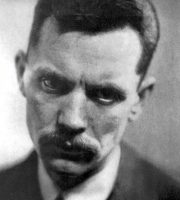
“I’m not man, or child, Hungarian or brother / lying here is just a tired man, like you. “
In the poem “By the Danube”, the poet adds another voice to the voices of Petőfi and Ady:
“Dead conquerors ride to victory with me / And I feel the torment of the vanquished. / Árpád and Zalán, Werbőczy and Dózsa, / Turks, and Tartars, Slovaks, Rumanians / Fill my heart which owes this past a calm future / As our great debt, today’s Hungarians.” *
Hungary or Land of the Hun
Every nation on earth rilies on a point of departure, an origin, a place, a beginning story, and every nation studies where its path throughout history, where they migrated to, or where they have settled. Hungarians call their own country “Magyarorszag”, and this name of the country is similarly used as “Macaristan” in Turkish, along with only a few other languages. As it is known, the vast majority of the world’s languages names the country and people departing from the prefix “Hun-“, and not “Magyar-“. Along with English, Hungary is known as “Hongrie” in French, “Hungria” in Spanish, “Ungarn” in German, “Ungheria” in Italian and “Hangari” in Japanese; basically, it is the “Land of the Hun”.
We have such a vast area in this topic, considering that the first Turkology courses were given in that nation as early as the 1830s, the first Institute of Turkology was opened in 1870, and the Hungarian-Turkish ethnic ties have always been a very exciting subject.
Ties between the Hungarian and the Turkish languages
Hungary was among one of the first countries to send a message of friendship and solidarity to Turkey after the failed coup attempt in 15th July 2021. Hungary was also the only country that vetoed the protest declaration of the European Union countries against the military operations launched by the Turkish Army against the American-backed terrorist forces in Northern Syria. The Hungarian government than declared that “Countries have the right to defend their borders.”. We also remember the Hungarian Minister of Foreign Affairs and Trade Péter Szijjártó’s statement that “The greatest problem in the Turkey-EU relations are the hypocritical policies against Turkey”. It is also known that Hungary has taken a stance in support of Turkey, and repeatedly invited Greece to act rationally concerning the problems in the Eastern Mediterranean. Let us also emphasize that the Hungarian President Victor Orban referred to Hungarian as “a unique language related to the Turkish language”, at the 2018 VI. Meeting of the Turkish Council in Kyrgyzstan, and that Hungarians are arguing about their Turkic ancestry.
In short, it is clear that new and colorful pages have opened in the 21st century, for the Turkish-Hungarian relations, which is filled with wars, ceasefires, trade and cultural exchanges throughout the history. The Hungarians’ “search” seems to continue not in misty forests and hopeless dialogues with “the last Hungarian”, but this time in fertile and hopeful lands, just like the Great Hungarian Plain.







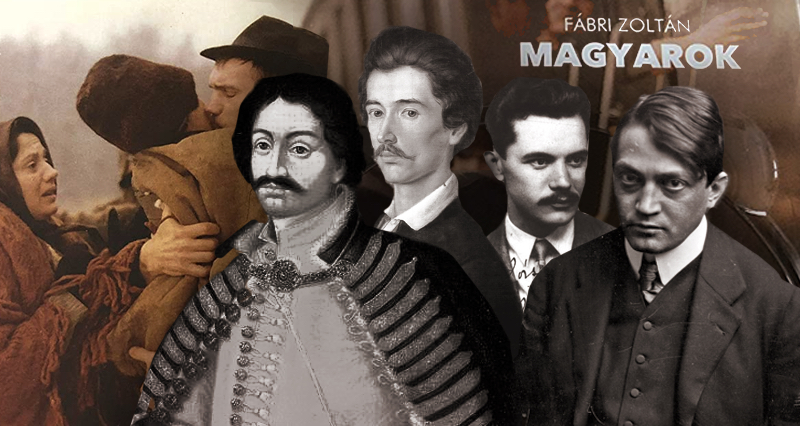

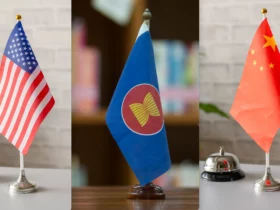


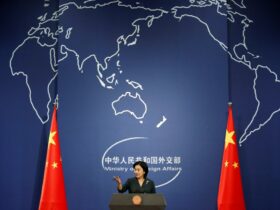




Leave a Reply